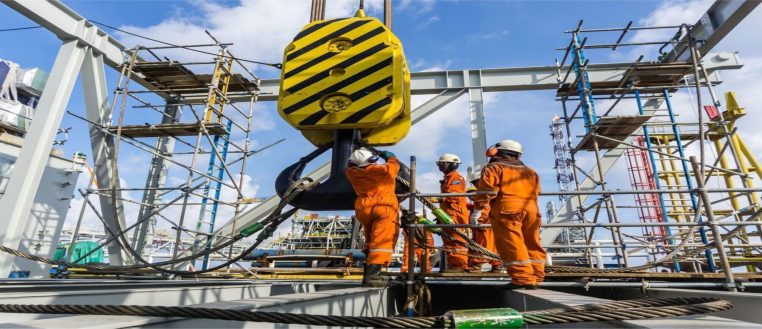Construction management is a complete process that oversees the planning, coordination, and execution of construction projects from start to finish. It includes scheduling, budgeting, quality control, and risk management. In this post, we’ll examine the notion and how it may help all stakeholders involved in building.
Introduction to Construction Management
What is construction management?
It is the strategic planning, coordination, and supervision of construction projects to ensure they are executed efficiently, within budget, and to quality standards. It entails managing all aspects of a project, from early planning and design to construction and post-construction activities.
Importance of Construction Management
Effective construction project management is critical to the success of any construction project. It helps streamline operations, reduce delays, regulate expenses, and assure regulatory compliance. It improves project efficiency by providing effective control and coordination and reducing the likelihood of errors or rework.
Key Components of Construction Management
Successful management is based on several fundamental components:
Planning and Scheduling
Comprehensive planning and scheduling are required to ensure construction projects run successfully and on schedule. Construction managers make thorough project plans, efficiently allocate resources, and establish realistic timeframes to drive project execution.
Budgeting and Cost Control
Construction managers are in charge of maintaining project budgets and controlling expenses throughout the construction process. They keep track of budgets, negotiate contracts, and look for ways to save costs while maintaining quality and safety.
Quality Management
Maintaining high standards of quality is critical in project management. Construction managers use quality assurance methods, conduct inspections, and swiftly fix any flaws or deficiencies to guarantee that the finished project meets or exceeds the client’s expectations.
Risk management
Construction projects are inherently complicated, with various risks, such as delays, budget overruns, and safety problems. Construction managers evaluate potential hazards, devise mitigation plans, and implement actions to reduce their impact on project outcomes.
Benefits of Construction Management
It helps all stakeholders by improving project efficiency.
Improved project efficiency
It streamlines project workflows, reduces delays, and optimises resource utilisation, increasing project efficiency and productivity.
Cost Savings
Further, it offers proactive cost control procedures, including budget monitoring, value engineering, and procurement optimisation, which help to reduce project costs and improve overall cost-effectiveness.
Enhanced quality control.
It also ensures that construction projects meet the highest quality standards through stringent quality assurance systems and ongoing monitoring, resulting in superior craftsmanship and customer satisfaction.
Timely project completion
Also, it helps to entail precise planning and scheduling to guarantee that project milestones are met on schedule and within budget, reduce delays, and ensure timely project completion.
The Role of Construction Managers
Construction managers are responsible for overseeing construction projects and ensuring their effective conclusion. They handle various duties and obligations, such as:
Responsibilities and Duties
Construction managers oversee all project parts, from early planning and budgeting to completion and handover. They collaborate with architects, engineers, subcontractors, and other stakeholders to ensure smooth project execution.
Skills required
Effective construction managers have a broad skill set, including excellent leadership, communication, problem-solving, and decision-making abilities. They also need a thorough awareness of construction procedures, laws, and industry best practices.
Technological Developments in Construction Management
Recent technological advances have transformed the management field, allowing for better efficiency, accuracy, and collaboration. Some key technologies are:
Project management software
Advanced software enables construction managers to optimise project workflows, track progress in real-time, and interact efficiently with project teams, improving overall project coordination and efficiency.
Building Information Modeling (BIM)
BIM technology creates digital models of construction projects, representing their physical and functional qualities. BIM, which simulates project components and processes in a virtual environment, aids in design optimisation, clash detection, and decision-making throughout the project lifecycle.
Case studies: Effective Implementation of Construction Management
Many projects have profited from the efficient use of various management principles. Some famous examples are:
- Burj Khalifa in Dubai, UAE.
- The Panama Canal Expansion Project
- High-Speed Rail Project in Japan
These projects show how construction management approaches can result in effective project results, such as cost savings, quality improvements, and timely completion.
Challenges of Construction Management
Despite its numerous advantages, it poses several obstacles that must be handled, including:
Labour shortages
The construction sector is experiencing a skilled labour shortage, which is affecting project timelines and costs. To ensure project success, construction managers must devise tactics to attract and retain talented staff.
Regulatory Compliance
Construction projects are subject to several regulations and codes that govern building safety, environmental effects, and labour procedures. Compliance with these requirements necessitates meticulous preparation and adherence to stringent standards.
Environmental considerations
Sustainable construction approaches are gaining importance nowadays. Construction managers must use environmentally friendly design and construction practices to reduce projects’ environmental impact.
Future Trends in Construction Management.
Several developing trends and technologies will shape the future, such as:
Sustainability
The construction sector is adopting sustainable techniques to cut carbon emissions waste, and save natural resources. Sustainable materials, energy-efficient design, and green building certifications are all becoming common practices in this technology.
Integration of AI and IoT
AI and the Internet of Things (IoT) transform the technology by providing predictive analytics, remote monitoring, and automated decision-making. These technologies improve project efficiency, safety, and resource utilisation.
Conclusion
Construction project management is crucial to guaranteeing the success of construction projects. It improves project outcomes by providing effective oversight, coordination, and control. With the implementation of sophisticated technologies and sustainable practices, the future appears bright, with new potential for innovation and growth.
Frequently Asked Questions (FAQs)
What is construction management?
Construction management is the strategic planning, coordination, and supervision of construction projects from inception to completion. It involves overseeing various aspects such as scheduling, budgeting, quality control, and risk management to ensure the successful execution of construction projects.
What is construction project management?
Construction project management is a subset of construction management, specifically overseeing and managing individual construction projects. It involves coordinating activities, resources, and stakeholders to achieve project objectives within specified constraints such as time, cost, and quality.
Which country is best for a master’s in construction management?
The best country for pursuing a master’s degree in construction management can vary depending on program quality, faculty expertise, industry connections, and career opportunities. Countries that offer reputable construction management programs include the United States, the United Kingdom, Australia, Canada, and Germany.
How different is software project management from construction?
Software and construction management are distinct fields with unique challenges and requirements. While both involve project planning, coordination, and execution, software project management typically focuses on developing and delivering software products or solutions. In contrast, management oversees physical projects such as buildings, infrastructure, or facilities.
What is commercial management in construction?
Commercial management involves managing the financial and contractual aspects of projects. It encompasses budgeting, cost control, contract negotiation, procurement, and client relations to ensure that projects are delivered on time, within budget, and in compliance with contractual obligations.








